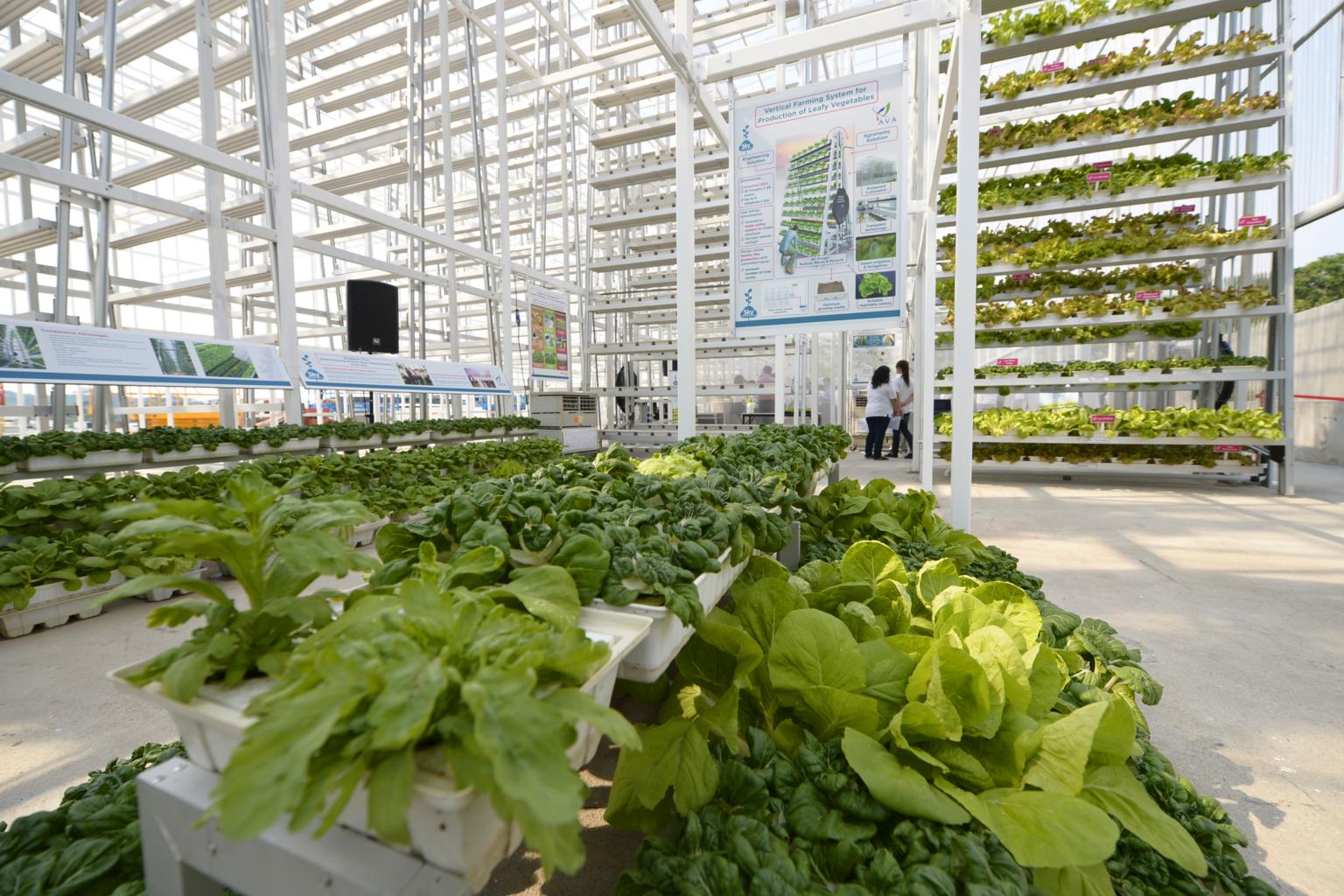Engineers needed to solve Singapore's future challenges
Sign up now: Get ST's newsletters delivered to your inbox

Expertise in process control, automation and robotics will be needed for new jobs, including in the agri-food sector.
PHOTO: ST FILE
SINGAPORE - In the next 10 years, many new jobs will be created in the agri-food sector and engineers will be needed, including people with expertise in process control, automation and robotics.
Speaking on Saturday (Nov 21) at the National Engineers Day celebration, Minister for Sustainability and the Environment Grace Fu said the future in sustainability and climate mitigation and adaptation requires engineering solutions.
"From building flood protection structures, more efficient solar PV (photovoltaic) systems, charging infrastructure for electric vehicles, harnessing value from waste to high-yield agri-tech system, we look to engineering... for solutions to our current and future challenges," she added.
The annual event for the young to discover engineering, held online this year, had kicked off on Nov 12.
The winners of this year's Engineering Innovation Challenge were announced on Saturday.
For the competition, 101 teams of students competed to find engineering solutions for real-world problems.
Winning projects included a system to improve crop quality, yield, and rate of growth in an urban farming setup, as well as a bacteria-killing ultraviolet light tunnel for sushi conveyor belts.
All winners will get a seed fund to kick-start their projects.
"Given that we produce less than 10 per cent of our nutritional needs now, it is even more crucial for us to harness technology and creative minds like yours to push the frontiers of local food production," Ms Fu said in her virtual address, delivered from The Institution of Engineers, Singapore (IES) building in Bukit Tinggi Road.
"We are no longer just growing our foods; we are producing our foods with manufacturing equipment and processes."
IES president Richard Kwok said each year, students leave the National Engineers Day celebrations with a "new sense of wonder about engineering".
"Their experience very often sparks a seed of passion for engineering in them, opening their eyes and minds to the positive differences that they can make in the world by becoming engineers," Dr Kwok said.
At the event, three agreements on the use of artificial intelligence (AI) in engineering were also signed.
Two will contribute to the setting up of Singapore's first AI Engineering Hub, as well as the establishment of learning and development programmes for engineers.
The last, between AI Singapore (AISG) and SMRT Corporation, is a collaboration on several AI projects.
Mr Laurence Liew, who is director of AI Innovation at AISG, stressed the importance of educating young people about the usefulness of AI in everyday life.
For example, the technology enables amateur photographers to achieve a pleasing bokeh photo effect - which uses out-of-focus parts in an image - with their smartphones, he said.
"You can take very nice pictures without having expensive equipment," Mr Liew added. "AI is a tool. You just have to leverage it."


